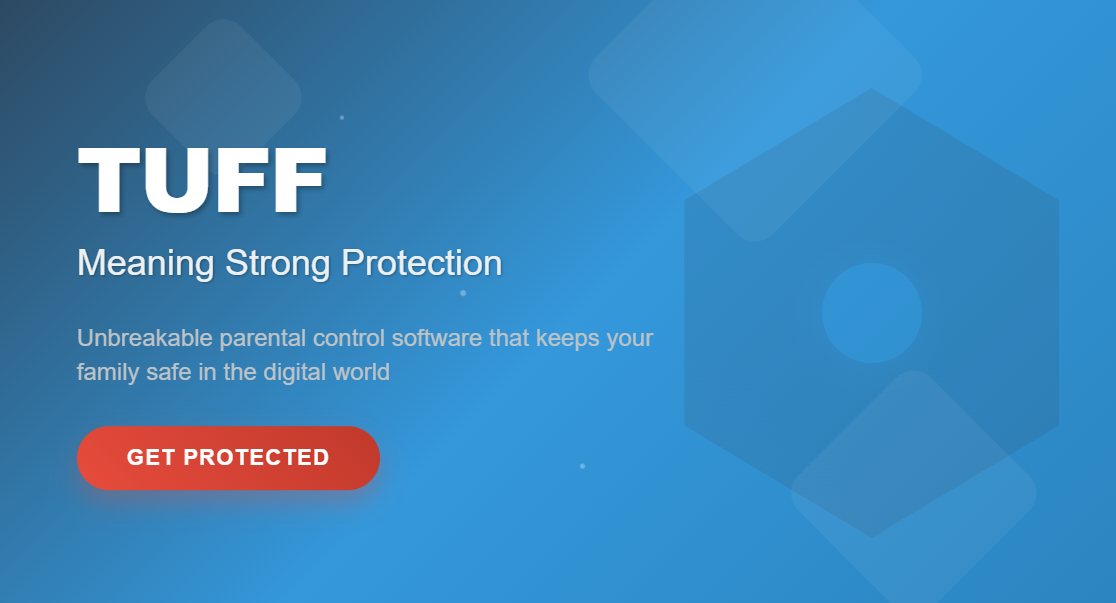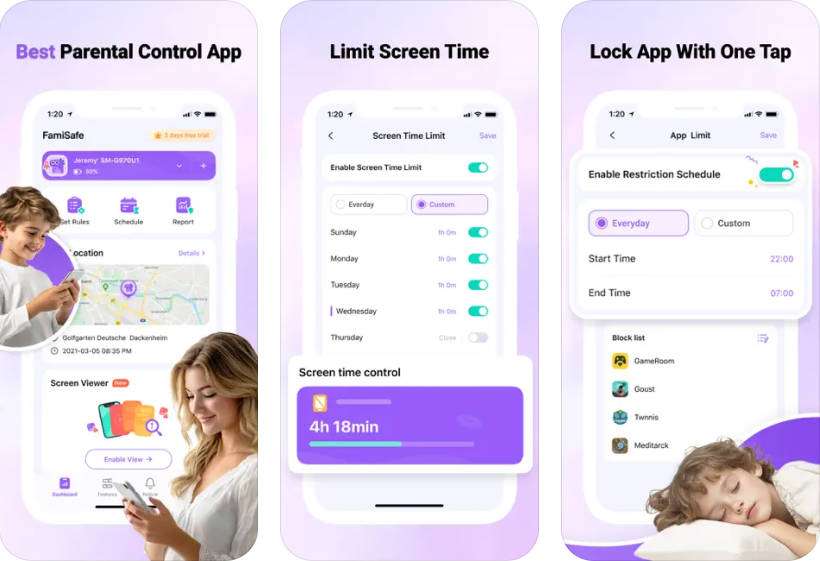If you've overheard your teenager say something like "That's tuff!" or seen it in their social media posts, you might be scratching your head wondering what happened to proper spelling. Don't worry – you're not alone! The tuff meaning in today's youth culture has nothing to do with volcanic rock formations you might remember from geology class.
Tuff meaning slang has become one of the most popular expressions among Gen Z and Gen Alpha kids, popping up everywhere from tuff meaning TikTok videos to everyday conversations. Understanding this and other slang terms isn't just about keeping up with trends – it's about staying connected with your children and ensuring their digital safety. Let's dive into what tuff meaning in chat really represents and how you can navigate this evolving linguistic landscape!

Table of Content
Part 1: What Does Tuff Mean?
Tuff is a modern slang variant of "tough" that's used to describe something impressive, cool, appealing, or admirable in today's youth culture. While the traditional word "tough" typically indicates something difficult, b, or resilient, the slang version "tuff" carries a positive connotation.
When someone describes something as "tuff," they're expressing b approval or admiration. "That shot at the end of the game was crazy, dude's tuff" is a perfect example of how teens use this term to praise someone's skills or achievements.
Origins and Evolution 📱
The term "tuff" has evolved from standard English as part of the ongoing trend where deliberate misspellings create new slang terminology. This linguistic evolution is particularly prevalent in digital communication, where alternative spellings help create distinct cultural identifiers.
Tuff meaning urban dictionary sources show three main variations:
- 'Tough': The formal spelling, traditional and proper
- 'Tuff': Casual, cooler, snappy – preferred by youth for brevity
- 'TuFF': Used for extra emphasis or drama in text messages
Common Usage Examples 🎯
Here's how teens typically use "tuff" in their daily conversations:
- Complimenting skills: "Your basketball moves are tuff!"
- Expressing admiration: "That outfit is absolutely tuff"
- Praising achievements: "Getting into that college is tuff work"
- Showing respect: "She handled that situation – that's tuff"
The key difference from traditional "tough" is that slang "tuff" is almost always used positively, while "tough" can describe both positive strength and negative difficulty.
Part 2: How Gen Z Uses Tuff Today
The rise of platforms like TikTok and Instagram has accelerated the spread of such slang terms, allowing them to quickly enter mainstream youth vocabulary. Understanding how your teens use "tuff" today requires looking at the digital spaces where they spend most of their time.
Social Media Context 📲
On platforms like TikTok, Instagram, and Snapchat, "tuff" appears in:
- Comments praising content creators: "This dance is tuff!"
- Captions celebrating achievements: "Made varsity team – feeling tuff ✨"
- Stories sharing cool experiences: "Concert was tuff last night"
- Direct messages between friends: "Your new haircut looks tuff"
Peer Communication Patterns 💬
Modern slang can often sound like a different language, which can create a disconnect between parents and their children. Gen Z uses "tuff" as part of their identity formation, creating in-group connections through shared language.
Positive reinforcement: Unlike some slang that can be concerning, "tuff" represents healthy peer support. When teens call something "tuff," they're building each other up and celebrating successes.
Generational bridge: Unlike some concerning slang terms, "tuff" is generally positive and harmless. Parents can use knowledge of such terms as conversation starters to better understand youth culture and their children's preferences.
Regional and Cultural Variations 🌍
While "tuff" has spread globally through social media, different communities may use it with slight variations:
- Gaming communities: "That play was tuff" (impressive gaming move)
- Sports contexts: "Team played tuff defense" (b performance)
- Fashion circles: "Your style is tuff" (trendy, appealing look)
- Music discussions: "This song goes tuff" (catchy, well-produced)
Part 3: Differences Between Tuff and Tough
Understanding the distinction between "tuff" and "tough" is crucial for parents navigating their teen's digital communication. While they sound identical, their usage contexts are quite different! 🔄
Spelling and Formality 📚
Tough is the established adjective synonymous with resilience and strength. Tuff, on the other hand, is a seldom-used informal alternative or a specific geological term. Here's when to use each:
Use "Tough" for: Formal writing and communication
- Describing difficulty: "Math homework is tough"
- Physical resilience: "She's tough enough for the marathon"
- Challenging situations: "Going through tough times"
Use "Tuff" for: Casual, informal contexts
- Expressing admiration: "Your performance was tuff!"
- Social media posts and comments
- Peer-to-peer conversations
Contextual Meanings ⚡
"Tough" is an adjective used to describe something that is b, difficult, hard to break, endure, or deal with. It can refer to physical strength, difficulty, or resilience. In contrast, the word 'Tuff' is primarily used as slang for something that is impressive or admirable. It is often used as a way to express enthusiasm and admiration.
Traditional "Tough" examples:
- "The steak was too tough to chew" (difficult to eat)
- "He's going through a tough divorce" (challenging situation)
- "She's a tough negotiator" (b, resilient)
Modern "Tuff" examples:
- "That skateboard trick was tuff!" (impressive, cool)
- "Your art skills are tuff" (admirable, praiseworthy)
- "This song is tuff" (appealing, well-made)
Professional vs. Social Usage 💼
No, "tuff" is not appropriate in formal writing unless you are specifically referring to the geological term. Parents should understand that while "tuff" is perfectly acceptable in their teen's social circles, it shouldn't appear in school assignments or formal communications.
Help your teen understand appropriate contexts:
- School essays: Always use "tough"
- Job applications: Stick to formal language
- Text messages with friends: "Tuff" is perfectly fine
- Social media posts: Either spelling works, depending on tone
Part 4: How to Talk Slang with Your Kids
Navigating your teenager's slang doesn't mean you need to start saying "tuff" in every conversation! The goal is building understanding and maintaining open communication channels. Here's how to approach youth language thoughtfully and effectively. 🤝
Building Bridges, Not Barriers 🌉
It's important to create open, non-judgmental dialogue about these colloquialisms. Rather than dismissing slang as "improper English," view it as an opportunity to connect with your child's world.
Conversation starters that work:
- Show genuine curiosity: "I've heard the term 'tuff' used online. What does that mean to you?"
- Share generational perspectives: "When I was your age, people would say something was 'all that and a bag of chips' if it was awesome. What's your favorite word to describe something as cool?"
- Explore emoji meanings: "I know emojis can mean something different to kids than they do to parents. Are there any emojis I use that you think I should stop using?"
Understanding vs. Appropriating 🎯
When we take the time to learn about the way our children speak, it shows kids that we prioritize our relationship and communication. We can use appropriate slang words once in a while to make our kids laugh. Use it correctly, or not — kids will appreciate the effort.
Do's and Don'ts for parents:
Digital Safety Through Understanding 🛡️
Understanding slang like "tuff" is just the beginning of maintaining your child's digital safety. While "tuff" itself is harmless, staying informed about your teen's online language helps you identify when concerning topics arise.
This is where tools like FamiSafe become invaluable for modern parents. FamiSafe offers comprehensive parental control features that help you stay connected with your child's digital world while respecting their growing independence.

FamiSafe's key features for digital communication safety:
- Explicit Content Detection: Automatically identifies concerning language in messages and alerts parents
- Social Media Monitoring: Tracks activity across popular platforms where slang evolves
- Screen Time Management: Helps balance online and offline family communication
- Safe Search: Filters inappropriate content when teens research new slang terms
- Real-time Alerts: Notifies parents when potentially risky conversations occur
Creating Safe Communication Spaces 🏠
Aim to balance safety with privacy and independence for your teen. Talk with your teen about the concerns you have, your family rules and expectations, as well as safe and healthy social media usage.
Remember, the goal isn't to become fluent in teen slang overnight, but to show your children that you're interested in their world and available for meaningful conversations about their digital experiences! 🌟
Conclusion
Understanding tuff meaning and other Gen Z slang isn't about becoming the "cool parent" – it's about maintaining meaningful connections with your children in an increasingly digital world. Tuff represents something positive and admirable in youth culture, making it a relatively harmless entry point into understanding how today's teens communicate.


